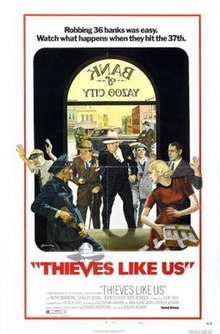
McCabe & Mrs. Miller is a 1971 American revisionist Western film directed by Robert Altman and starring Warren Beatty and Julie Christie. The screenplay by Altman and Brian McKay is based on the 1959 novel McCabe by Edmund Naughton. Altman referred to it as an "anti-Western" film because it ignores or subverts a number of Western conventions. It was filmed in British Columbia, Canada in the fall and winter of 1970, and premiered on June 24, 1971.
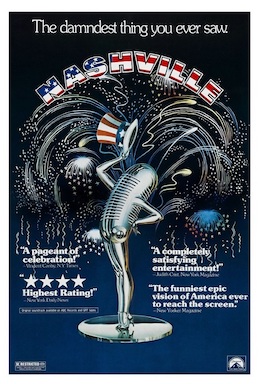
Nashville is a 1975 American satirical musical comedy-drama film directed and produced by Robert Altman. The film follows various people involved in the country and gospel music industry in Nashville, Tennessee over the five-day period leading up to a gala concert for a populist outsider running for President on the Replacement Party ticket.

Quintet is a 1979 American post-apocalyptic science fiction film directed by Robert Altman. It stars Paul Newman, Brigitte Fossey, Bibi Andersson, Fernando Rey, Vittorio Gassman and Nina Van Pallandt.

Short Cuts is a 1993 American comedy-drama film, directed by Robert Altman. Filmed from a screenplay by Altman and Frank Barhydt, it is inspired by nine short stories and a poem by Raymond Carver. The film has a Los Angeles setting, which is substituted for the Pacific Northwest backdrop of Carver's stories. Short Cuts traces the actions of 22 principal characters, both in parallel and at occasional loose points of connection. The role of chance and luck is central to the film, and many of the stories concern death and infidelity.

Shelley Alexis Duvall is an American actress and producer widely known for her portrayal of distinctive, often eccentric characters. She is the recipient of several accolades, including a Cannes Film Festival Award and a Peabody Award and nominations for a British Academy Film Award and two Primetime Emmy Awards.

They Live by Night is a 1948 American film noir directed by Nicholas Ray, in his directorial debut, and starring Cathy O'Donnell and Farley Granger. Based on Edward Anderson's Depression-era novel Thieves Like Us, the film follows a young convict on the run who falls in love with a woman and attempts to begin a life with her.

Brewster McCloud is a 1970 American black comedy film directed by Robert Altman. The film follows a young recluse who lives in a fallout shelter of the Houston Astrodome, where he is building a pair of wings in order to fly. He is helped by his comely and enigmatic "fairy godmother," played by Sally Kellerman, as he becomes a suspect in a series of murders and a haughty hot-shot detective lieutenant from San Francisco, played by Michael Murphy, is soon hot on his trail.
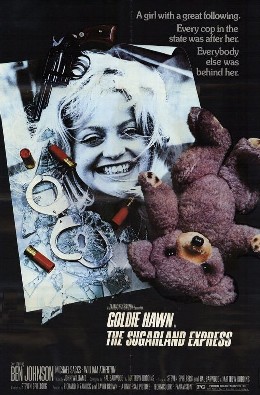
The Sugarland Express is a 1974 American crime drama film directed by Steven Spielberg in his feature film directorial debut. The film follows a woman and her husband as they take a police officer hostage and flee across Texas while they try to get to their child before he is placed in foster care. The event partially took place, the story is partially set, and the film was partially shot in Sugar Land, Texas. Other scenes for the film were filmed in San Antonio, Live Oak, Floresville, Pleasanton, Converse and Del Rio, Texas.

Personal Best is a 1982 American drama film written, produced and directed by Robert Towne. It stars Mariel Hemingway and real-life track star Patrice Donnelly, along with Scott Glenn as the coach. The film is about the lesbian relationship between two track-and-field teammates whose relationship might interfere with their performance.

Secret Honor is a 1984 American historical drama film directed by Robert Altman, written by Donald Freed and Arnold M. Stone, and starring Philip Baker Hall. It is based on the play, and follows Richard Nixon as a fictional account attempting to gain insight. It was filmed at the University of Michigan.

3 Women is a 1977 American psychological drama film written, produced and directed by Robert Altman and starring Shelley Duvall, Sissy Spacek and Janice Rule. It depicts the increasingly bizarre relationship between a woman (Duvall), her roommate and co-worker (Spacek) and an older pregnant woman (Rule), in a dusty California desert town.

Husbands is a 1970 American comedy-drama film written and directed by John Cassavetes. It stars Ben Gazzara, Peter Falk, and Cassavetes as three middle class men in the throes of a midlife crisis following the death of a close friend.

Images is a 1972 psychological horror film written and directed by Robert Altman and starring Susannah York, René Auberjonois and Marcel Bozzuffi. The picture follows an unstable children's author who finds herself engulfed in apparitions and hallucinations while staying at her remote vacation home.
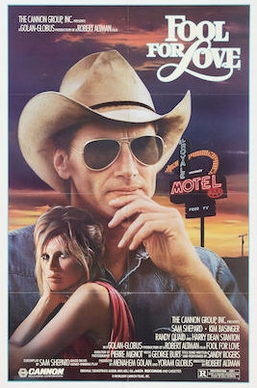
Fool for Love is a 1985 American psychological drama film directed by Robert Altman, and starring Sam Shepard, Kim Basinger, Harry Dean Stanton, Randy Quaid, and Martha Crawford. It follows a woman awaiting the arrival of her boyfriend in a derelict motel in the Mojave Desert, where she is confronted by a previous lover who threatens to undermine her efforts. It is based on the 1983 stage play of the same name written by Shepard, who also adapted the screenplay.
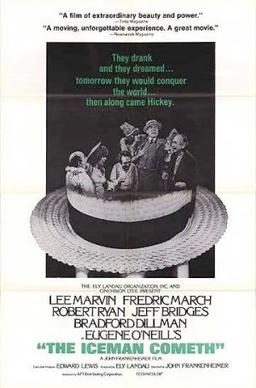
The Iceman Cometh is a 1973 American drama film directed by John Frankenheimer. The screenplay, written by Thomas Quinn Curtiss, is based on Eugene O'Neill's 1946 play of the same name. The film was produced by Ely Landau for the American Film Theatre, which from 1973 to 1975 presented thirteen film adaptations of noted plays.
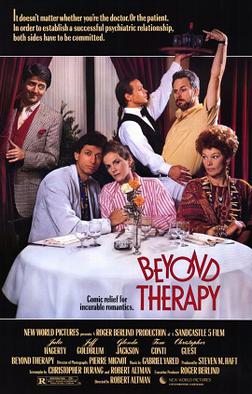
Beyond Therapy is a 1987 American comedy film written and directed by Robert Altman, based on the 1981 play of the same name by Christopher Durang. It stars Julie Hagerty, Jeff Goldblum, Glenda Jackson, Tom Conti, and Christopher Guest.
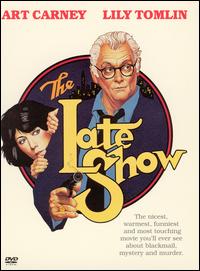
The Late Show is a 1977 American neo-noir mystery film written and directed by Robert Benton and produced by Robert Altman. It stars Art Carney, Lily Tomlin, Bill Macy, Eugene Roche, and Joanna Cassidy.
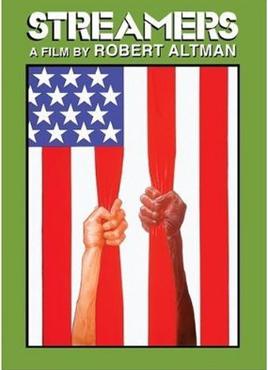
Streamers is a 1983 film adapted by David Rabe from his play of the same name. The film was directed by Robert Altman and produced by Robert Michael Geisler and John Roberdeau, who later produced The Thin Red Line. The cast includes David Alan Grier as Roger, Mitchell Lichtenstein as Richie, Matthew Modine as Billy, Michael Wright as Carlyle, George Dzundza as Cokes, and Guy Boyd as Rooney.

M*A*S*H is a 1970 American black comedy war film directed by Robert Altman and written by Ring Lardner Jr., based on Richard Hooker's 1968 novel MASH: A Novel About Three Army Doctors. The picture is the only theatrically released feature film in the M*A*S*H franchise, and it became one of the biggest films of the early 1970s for 20th Century Fox.
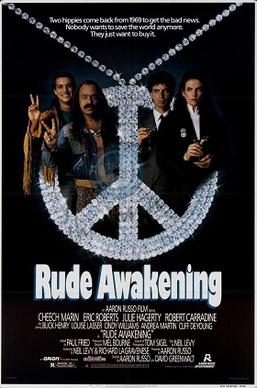
Rude Awakening is a 1989 comedy film directed by David Greenwalt and Aaron Russo.
